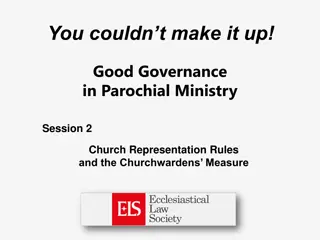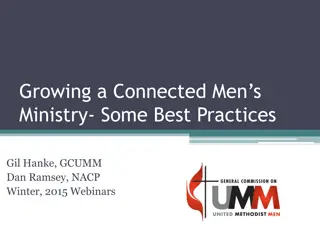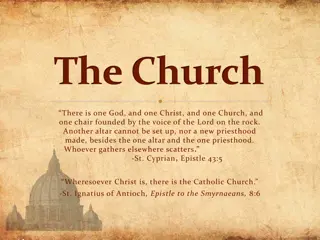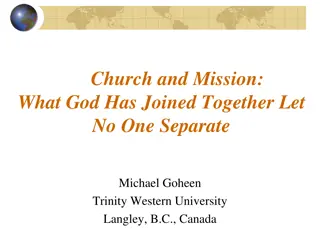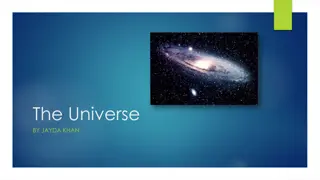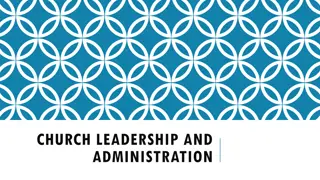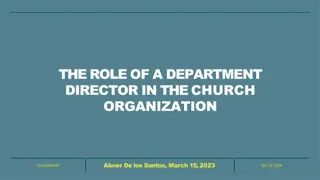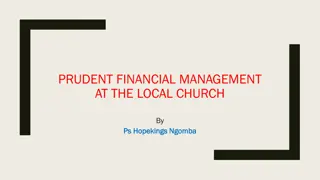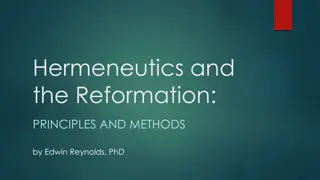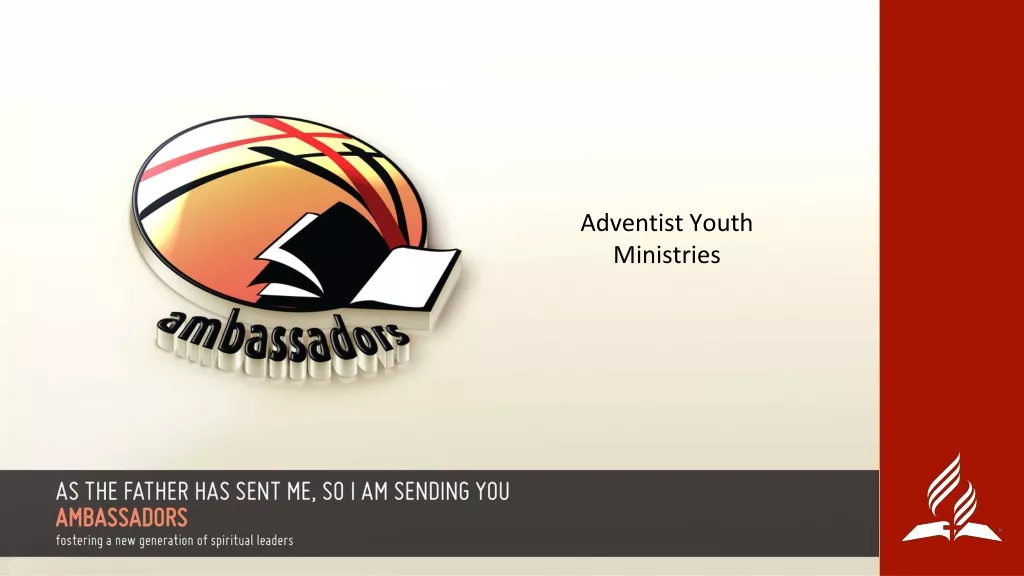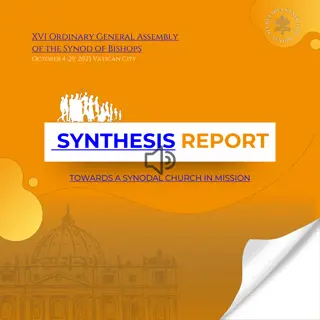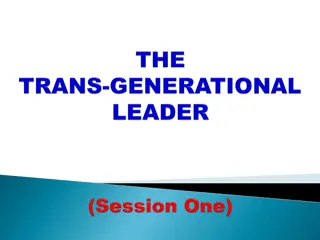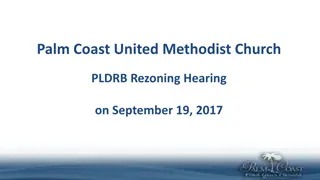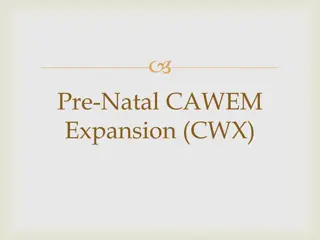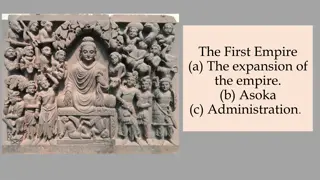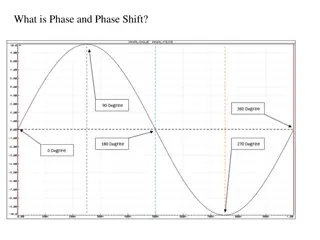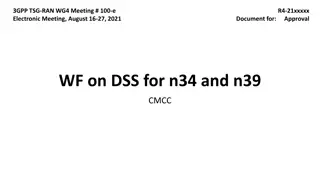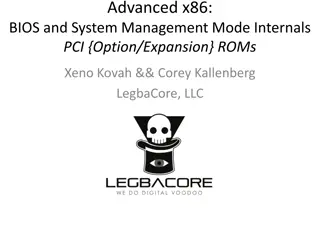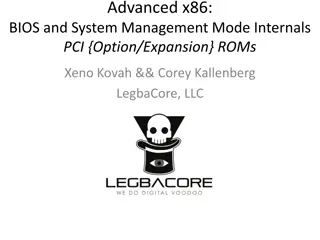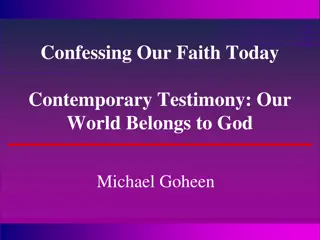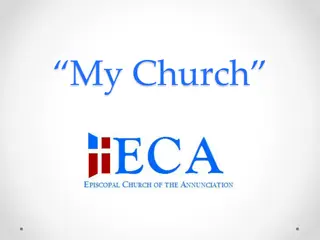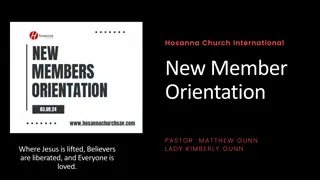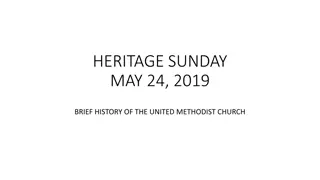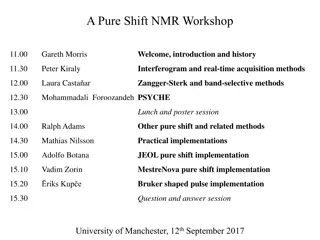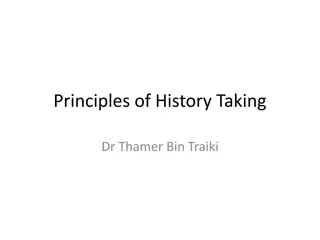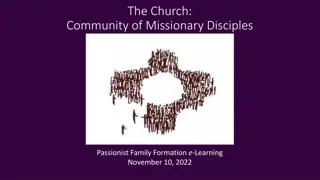Shift of the Church: Eastward Expansion Through History
The Asian Church is witnessing a significant shift in influence from the West to the Majority World, marking a transformative phase in modern mission movements. With historical milestones like the Roman Catholic presence established in 1493 and the Protestant movement beginning in 1705 through figures like Augustine Francke, this shift represents a notable transition in the center of gravity within the global Church landscape.
Download Presentation

Please find below an Image/Link to download the presentation.
The content on the website is provided AS IS for your information and personal use only. It may not be sold, licensed, or shared on other websites without obtaining consent from the author. Download presentation by click this link. If you encounter any issues during the download, it is possible that the publisher has removed the file from their server.
E N D
Presentation Transcript
ASIA 2021 MEGATRENDS IN THE ASIAN CHURCH THE SHIFT OF THE CENTER OF GRAVITY OF THE CHURCH FROM THE WEST TO THE MAJORITY WORLD
MODERN MISSION MOVEMENT From the WEST to the REST * 1493 Roman Catholics, Pope Alexander VI * 1705 Protestants, began with Augustine Francke * 19th & 20th Centuries: The Great Missionary Advance into the Majority World
20th CENTURY The Center of Gravity of the Church Shifted From the West (Europe, N America, Australia and NZ) To the Majority World (Africa, Asia, Latin America and MENA) West Majority World 1900 2020 83% 33% 17% 67% World Christian Population
* What are some important issues that have emerged in the process of this shift? * What challenges do they pose for Asian Christianity?
1. Worldviews and the intellectual challenge Western intellectual discourse is primarily centered on modernity, post- modernity and the resultant secularism. Asian thought is dominated by the respective religious frameworks and traditional cultures. Q: So long as our training and theological formation are still rooted in a western framework, how can we address the intellectual challenges in Asia adequately?
2. The growth of Majority World churches and the recovery of the supernatural Over the past hundred years, the rapid growth of churches in the MW has been driven largely by the same signs and wonders that Paul speaks of in Rom 15:18-19. Western Christianity influenced by the Enlightenment has generally rejected the supernatural and the miraculous. Fuller Professor Charles Kraft: Enlightenment Christianity is powerless. Q: How can we recover the supernatural dimension in our Christianity today without going into excesses?
3. Ministry and mission by human management versus dependence on the Spirit Latin American Samuel Escobar critiques western managerial missiology : doing Christian mission by simply employing good management techniques. We often assume that the church will simply grow if there are enough workers, money, academic training, proper strategic planning and sound management. Two key factors behind the advance of the church are: On God s side: the initiative and power of the Holy Spirit On the human side radical holiness, prevailing prayer, obedience and sacrifice. Q: How can these truths reshape and drive Asian mission efforts in the coming years?
4. The challenge of shallow discipleship or nominalism Nominalism is a serious challenge and dysfunctional leadership problems persist everywhere in Asia. Christians struggle with holy living because of insufficient teaching and lack of modelling, leading to the problems of shallow discipleship in Asian churches. Q: How are we to learn from the highest traditions of spiritual formation found in church history: great biblical preaching, monastic spirituality, Puritan pastoral care, Lutheran pietism, Methodist small groups & holiness emphasis, and radical obedience and costly sacrifice.
5. Theological education and ministerial training Churches in Asia have adopted the academic model used in the West. But increasingly this is found wanting. Reasons: Content is based largely on western textbooks Methodology is western and problematic in various ways. Lack of integration between classroom learning and practical ministry How many leave the seminary as men and women of prayer? Q: Why are we so slow in making a break with a model that almost everyone acknowledges is in need for serious revision?
6. Confidence in the gospel of Christ Many in the West today consider Christianity outdated, stale and irrelevant. This and other factors have contributed to the decline and loss of vitality in western Christianity. Contrast the church in the Majority World: The encounter with Christ is recent and the experience of its efficacy and power is fresh and liberating. Many Christians in Asia are therefore driven by a vision of a new world founded on the gospel of Christ which holds promise for both now and eternity. Q: How can this fresh experience of the gospel of Christ and confidence in its transforming power help revitalize global Christianity today?
Addressing these issues will help the churches in the Majority World as follows: Enable Christians in the MW to develop clear and confident indigenous identities of their own, and not constantly looking to western churches for their identities. Provide a needed corrective to western theology, especially in areas where Christians in the West have been blindsided by their own histories and cultures. The above two will in turn bring about true mutuality and mature partnerships between the churches in the West and those in the MW. Mature churches will empower MW Christians to work with confidence alongside western Christians in world mission, including the re-evangelization of the West.
* More than 40 years ago, John Stott told an Asian graduate student in theology: As the western church continues to decline, we are looking to Christians from the non-western world for leadership! * How will Christians in Asia respond to this call? * Will we have the faithfulness and courage to embrace our God-given task for this generation?




